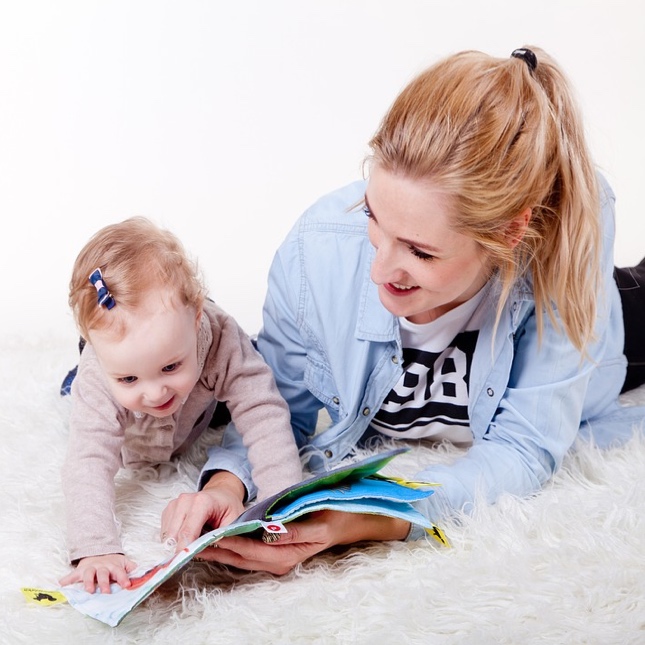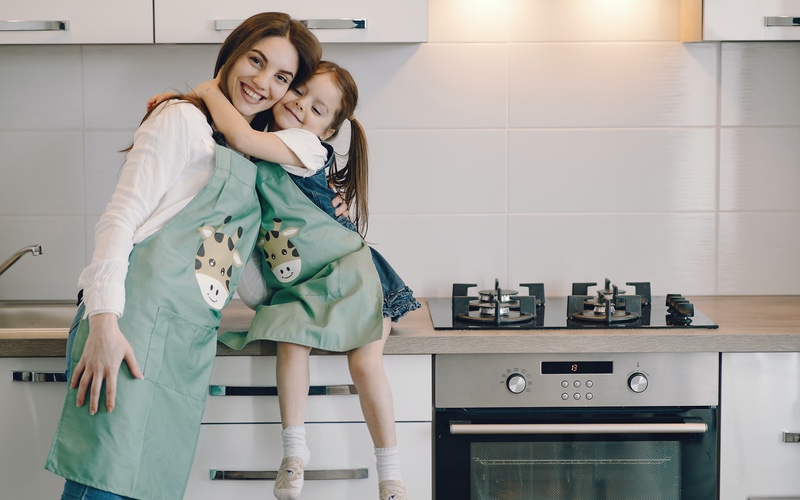Romp n' Roll Pittsburgh Blog

Using Effective Communication with Your Children in Pittsburgh, PA
Mar 29th, 2022
Child Development, Tips
Here at Romp n' Roll in Pittsburgh, PA, we understand that talking with children can be fun and frustrating in many ways. Parents like to keep conversations with their kids light and easy so they can work on to-do lists or relax after a busy day. However, being able to communicate with your children effectively will not only improve the relationship but will set them up for success as they grow and move on in the world. Good communication with your child can improve connection, easier cooperation, and strong self-esteem.
Below are four suggestions for communicating with your children to improve your relationship with them and teach them how to communicate healthily as they grow and develop.
Engage with the Conversations
When talking with your children, use open-ended statements and questions to show them you are listening and interested. Some examples are:
- "Wow!"
- "How interesting."
- "That's amazing!"
- "Really?"
- "Tell me more."
- "How cool!"
Additionally, put the phone, computers, and other tasks down while talking with your children to show them you are fully engaged and happy to continue the conversation. Having two-sided and engaging conversations with your children builds your connection and helps them feel loved and understood.

Change Requests From "Don't" to "Do"
Being told "don't jump on the couch" can confuse a child because they may not immediately translate that into "sit down and be calm" like we want. Try telling your children what you want them to do instead of what you don't want. For example:
- Turn "don't jump on the couch" to "sit on your bum."
- Or change "stop yelling" into "use your soft voice."
By telling your child what you want instead of what you don't want, your child will have an easier time understanding and will feel more inclined to listen.

Avoid Unkind Words and Phrases
Try your best to avoid saying things that would be unkind or cause shame to your children. Some unkind phrases might look like this:
- "You're so annoying. Just be quiet."
- "You look so dumb right now. Stop acting crazy."
- "Your room is a mess, and it's disgusting."
These words hurt your child's feelings and only shame them into submission. Doing this damages your relationship and makes communication harder in the long run. When you need to address a behavior, use "i" statements. Doing this takes away the shame and better communicates your exact needs. Below are some examples:
- "You're so annoying" becomes "I don't have a lot of patience right now. Please play a quieter game."
- "Your room is a mess" turns into "I need you to clean your room, please."

Empathise With Their Feelings
Parents are good at giving instructions and providing facts like "buckle your seatbelt" and "having candy for dinner isn't healthy." Difficulties arise when big feelings are involved (for both the parent and the child), and you aren't sure how to navigate that conversation.
Acknowledging and empathizing with your children's feelings is a great way to communicate through an issue. Little kids have big emotions, and they affect their lives just like our adult feelings do. Showing that you understand their feelings will help you talk through complex topics and come to a resolution. Talking about both of your emotions will build their "emotional vocabulary" and set them up for success in the future.
Now that you have some suggestions for communicating better with your children verbally, it is also vital to address nonverbal communication. Body language and tone of voice play into the words we are trying to communicate and how they are received. Here are some quick tips on communicating better without using your words.
Are you crossing your arms, or do you have your hands on your hips? If so, try relaxing your arms and shoulders and addressing your children with open arms and hands.
Are your children hunched over or avoiding eye contact? They might be feeling stressed or ashamed, and you can start the conversation with that in mind.
Physically showing that we are listening and paying attention while they are talking boosts their confidence and shows them you love them.
Most young children enjoy being physically close with their parents, so try sitting with them and getting on their level when talking. Doing this will build that relationship and make communicating much more manageable.
Changing the words we use and how we address our children is not an overnight process; it takes time. But with patience and practice, you can learn how to communicate more effectively with your children and build a strong relationship. Romp n' Roll in Pittsburgh, PA wants you to feel confident talking with your children, and we want your children to have confidence with communication as well! Sign your child up for a class today to help them learn their own communication skills.